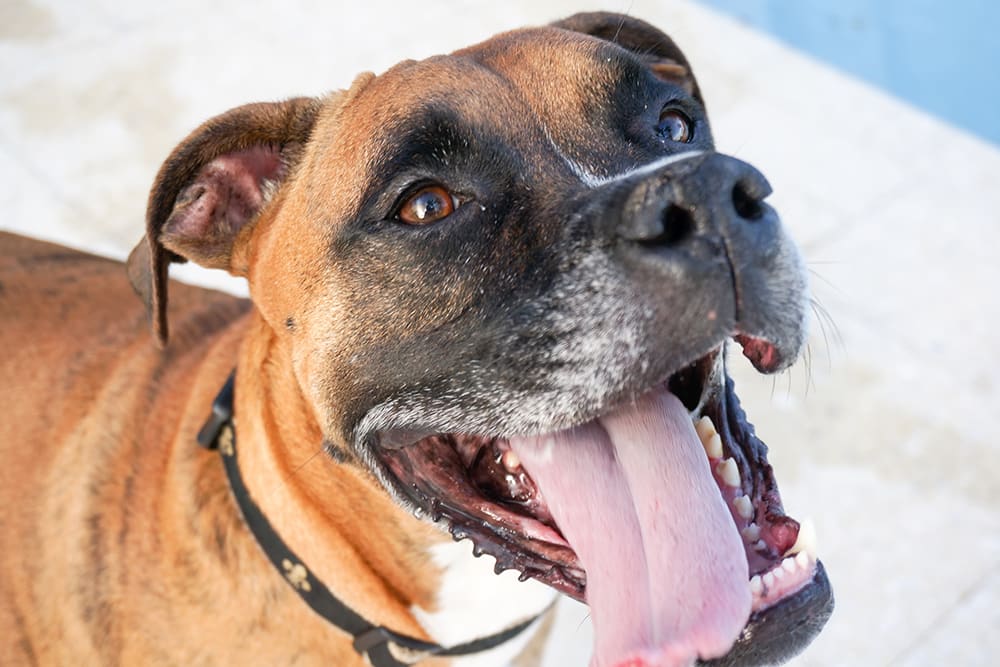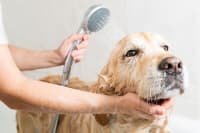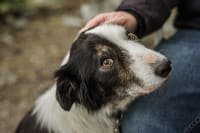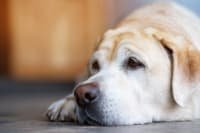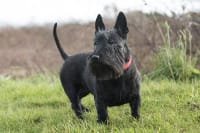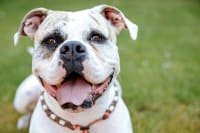Pet Care
What To Do About Your Dog’s Stinky Breath
Why is my dog’s breath smell so bad?
Bad breath is certainly not uncommon in dogs. While it’s perfectly normal for your pup to have some smell on their breath from eating, playing with toys and just living their normal doggie lives, this smell can sometimes grow into a stink that repels all but the bravest pup parents.
But bad breath is no laughing matter when it comes to our canine companions. Your dog’s bad breath could be a sign of an underlying health issue, so although you may be tempted to just grin and bear it, it’s important to take your dog to see the vet if they are experiencing chronic bad breath.
Dental Health Problems
Oral health issues are the most common cause of bad breath in dogs. Oral health issues that could lead to stinky breath in dogs range from tooth decay to gum disease and oral infections. Regardless of the precise cause, bacteria and food debris build up over time in your pup’s mouth if not regularly cleaned away, resulting in plaque and a persistent bad smell.
If your dog’s breath smells a little bit, it is likely caused by emerging oral health issues. Although if they are left unchecked, the smell will become much stronger and your pet’s oral health and wellbeing will continue to decline.
Kidney Disease
If your pup’s bad breath smells like feces or urine, it may be a sign that they have recently eaten poop (which is another common problem that should be investigated by your vet) or a symptom of kidney issues. When your dog’s kidneys aren’t working properly they are unable to filter and process toxins and waste materials as they should. This can lead to a buildup of these waste products in your pup’s body which is both harmful for your dog’s overall health and a possible cause of bad breath.
Liver Disease
If your dog has recently developed seriously bad breath and their new scent is accompanied by concerning symptoms such as vomiting and diarrhea, liver disease could be the underlying cause of their symptoms.
Can my vet help to improve my dog’s breath?
Treatment for your dog’s bad breath will depend upon the underlying cause of the condition. That said, once your pooch has been successfully treated for the underlying health issue their bad breath should begin to clear up.
If you notice a sudden change in your dog’s breath, particularly if your pooch is older, it’s important to see your vet in order to get a diagnosis as early as possible. Treatments are typically most successful and easiest when conditions are caught in the early stages.
Treatments for your dog’s bad breath can range from prescription medications, specialized diets, therapies and even surgeries depending on the cause and severity of the underlying condition.
How can I cure my dog’s bad breath?
While you aren’t able to treat kidney or liver disease at home, one way you can help to treat or prevent bad breath in your dog is ensuring your pup gets the routine oral hygiene care they need every day in addition to annual professional dental cleanings.
Our vets recommend that while your canine companion is still a young puppy you should begin brushing their teeth. This may sound silly but spending the time when they are young to help them get used to the experience of tooth brushing can help to avoid more serious dental health issues when they are older.
If you aren’t able to train your pup to tolerate having their teeth brushed there are a wide variety of dental chews and dog foods formulated to promote good oral health. Ask your vet about these and other oral health solutions for your dog.
When it comes to preventing internal organ damage and disease that could affect your dog’s liver or kidneys, there are also a couple of easy measures you can take.
- Make sure to keep human medications out of your dog’s reach. Many are toxic to pets and can lead to severe organ damage
- Ensure that any houseplants or foods within your pups reach are safe for dogs. Foods such as raisins and chocolate can be deadly for our canine companions, and countless houseplants can be problematic for your pup’s health.
- Keep known toxins locked up such as antifreeze which can lead to severe and sudden organ failure in dogs.
Note: The advice provided in this post is intended for informational purposes and does not constitute medical advice regarding pets. For an accurate diagnosis of your pet’s condition, please make an appointment with your vet.
Does your dog have stinky breath? Our Clemmons vets can diagnose the problem and provide solutions to help improve your pup’s breath. Contact Animal Hospital of Clemmons today to book an examination for your four-legged friend.
Looking for a vet in
Clemmons?
We’re always accepting new patients, so contact our veterinary hospital today to book your pet’s first appointment.
Related Articles View All
Puppy Teething Tips for Pet Parents
Our Clemmons vets understand how trying it can be when your puppy starts teething. Teething pain often leads puppies to chew on things they shouldn’t – including your best shoes and furniture. Here are a few tips to help you and your puppy deal with your puppy’s teething.
Dog Grooming 101 – Grooming Different Coat Types
Although all dogs require brushing, bathing and general grooming, some require more care than others. Today our Clemmons pet grooming team explains how to care for dog coats of different textures and lengths.
Why should I enrol my pet in a Wellness Plan?
If your veterinary clinic offers Pet Wellness Plans you may be curious as to how these plans work and whether they are worth signing up for. Today, our Clemmons vets share 4 benefits to consider when deciding whether a Pet Wellness Plan is right for you and your pet.
Dog Acupuncture & The Conditions It Can Treat
Our Clemmons vets know that if your pet is suffering from a health issue you will want to do all you can to help them feel better. Pet acupuncture can be a noninvasive way to help improve your pet’s rehabilitation. Here’s a bit about how acupuncture for dogs works and when it can be used.

